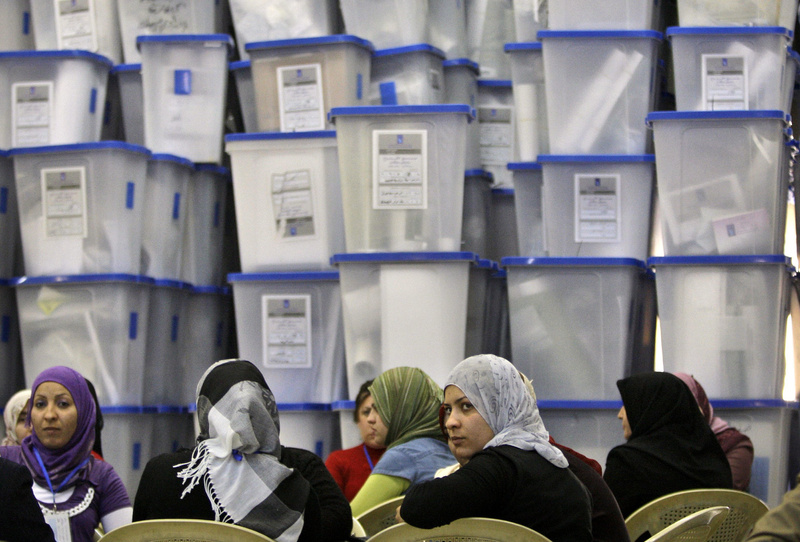BAGHDAD – The Iraqi prime minister’s coalition and its main secular rival both claimed to be ahead in the vote count Monday, a day after parliamentary elections that the top U.S. commander said would let all but 50,000 American troops come home by the end of summer.
Sunday’s election marked a turning point for the country’s democracy. The winner will help determine whether Iraq can resolve its sectarian divisions and preserve the nation’s fragile security as U.S. troops leave.
Initial results for some provinces, as well as for Baghdad were to be announced today.
The election was only the country’s second for a full parliamentary term, and it attracted 62 percent of about 19 million eligible voters, according to the nation’s election commission. The last such election, in December 2005, attracted roughly 76 percent of eligible voters.
Officials attributed the lower turnout to a combination of voter intimidation, more stringent ID requirements at the polls and a drop in voter excitement. A spate of attacks on election day killed 36 people.
Gen. Ray Odierno called the election a milestone and said every sign suggests Iraq can peacefully form a new government in the coming months, and U.S. combat troops can head home by the end of August.
Most of the roughly 96,000 troops in Iraq will remain here through May, when the military will begin scaling down to 50,000 noncombat troops by the Obama administration’s self-imposed deadline at the start of September, Odierno said.
The timetable calls for all troops to be out by the end of 2011. “Unless there’s a catastrophic event, we don’t see that changing,” Odierno said.
With ballots still being counted, officials from both the State of Law coalition led by Prime Minister Nouri al-Maliki and the rival Iraqiya claimed to be leading. Iraqiya is a secular alliance led by Shiite former Prime Minister Ayad Allawi, but it also contains many Sunnis.
Abbas al-Bayati from al-Maliki’s coalition said early information from the coalition’s representatives showed the group did well in Baghdad and in the Shiite south, which includes Iraq’s second-largest city, Basra.
But Iraqiya conceded no ground, saying the group had done well in areas such as Anbar, Diyala and Ninewah, which is home to Iraq’s third-largest city. Iraqiya appeared to cash in on the votes of Sunnis who see Allawi as a Shiite who can represent their interests but is not beholden to neighboring Iran.
“We expect that we are first in Iraq,” said Raheem al-Shimmari, an Iraqiya official.
Send questions/comments to the editors.



Success. Please wait for the page to reload. If the page does not reload within 5 seconds, please refresh the page.
Enter your email and password to access comments.
Hi, to comment on stories you must . This profile is in addition to your subscription and website login.
Already have a commenting profile? .
Invalid username/password.
Please check your email to confirm and complete your registration.
Only subscribers are eligible to post comments. Please subscribe or login first for digital access. Here’s why.
Use the form below to reset your password. When you've submitted your account email, we will send an email with a reset code.